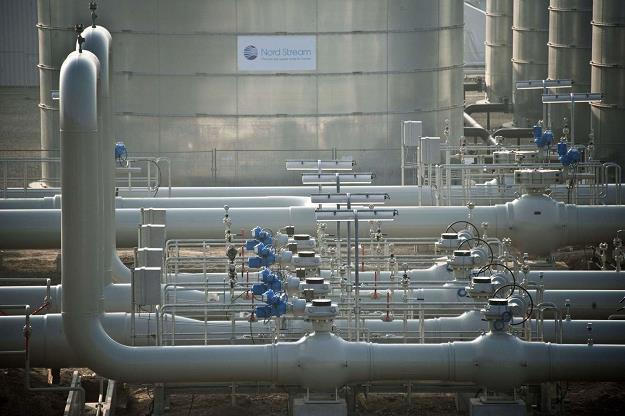
NORD STREAM - 2: A SHOT IN THE FOOT

Investors are wary of pouring money into a planned doubling of Gazprom's Nord Stream gas link to Germany, analysts said, amid doubts about regulatory approvals and deep political divisions.
Since taps opened five years ago on the first pipeline from Russia's Baltic coast to Germany, bypassing Ukraine, the gulf has widened between EU countries angered by Russia's military actions there and those worried about security of gas supply.
At an emotional summit last week, national leaders said Nord Stream-2 undercut EU unity against Russia. Only Germany and the Netherlands backed the project, ministers said.
EU officials have warned investors would be wise to wait for regulators to rule on Nord Stream-2, and analysts say lenders might be cautious.
"The European Commission is certainly raising far more issues than for the original Nord Stream," said Richard Sarsfield-Hall, senior principal at consultancy Poyry, which advises energy firms.
"The financial community may take some persuading that the project is viable."
Even backers of Nord Stream-1 are more sceptical this time around.
Laszlo Varro, head of gas, coal and power markets at the International Energy Agency in Paris, said it was a "huge question" whether Gazprom's investment in Nord Stream-2 could be recovered, due to stagnating demand in Europe and an expected surge in liquefied natural gas (LNG) supply.
He added that Kiev had "even in extremely unfavourable circumstances" delivered all transit deliveries in the last 18 months.
POLITICS VERSUS ECONOMICS VERSUS REGULATION
Already Nord Stream-1 is under-used because EU regulatory concerns have never been fully resolved.
But backers of the project say there is no legitimate legal reason to block Nord Stream-2, and German, French, Austrian and Anglo-Dutch firms partnering Gazprom want access to reliable, competitively-priced gas supplies to compensate for declining European production.
Russia supplies around a third of the EU's gas, roughly half of which is shipped via Ukraine.
"The energy community takes the view that 'listen I have had it with these (Ukrainian) guys; we are the people who suffer when there are problems, not the politicians," said Jonathan Stern, chairman of the Natural Gas Research Programme at the Oxford Institute for Energy Studies.
Industry sources say the firms involved - E.ON and Wintershall, Shell, OMV and Engie - also see side benefits as they negotiate new contracts with Gazprom and push for spot pricing, rather than long-term contracts pegged to higher oil prices.
Wintershall and Shell said in emails that Nord Stream-2 would increase flexibility and security of supply.
For Russia's Gazprom, the pipeline is part of a quest to cut some $2 billion in transit fees it pays Ukraine annually and to maintain its grip on the European market.
Tim Boersma, a fellow at Washington's Brooking's Institution, saw an economic rationale. "Nord Stream-2 inevitably lowers the transit costs on the current routes," he said.
Russian Economy Minister Alexei Ulyukayev put it more bluntly, telling reporters in Brussels that blocking Nord Stream-2 would be "a shot in the foot" especially for Gazprom's European clients.
Russia says it wants the pipeline by 2019, when its transit contract with Ukraine expires, although industry sources say that is optimistic.
One Gazprom source predicted Germany would make the project happen: "Things will be as the Germans decide," the source said on condition of anonymity.
But German government sources said Chancellor Angela Merkel might not be ready to fight for the pipeline expansion and it would not be the first project to be only a pipe dream.
Russia last year announced it was scrapping the South Stream pipeline, also planned to bypass Ukraine through a route into southern Europe, over EU rules.
-----
More:
NORD STREAM II: PRAGMATIC SOLUTION

